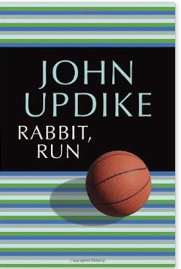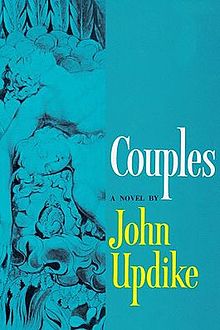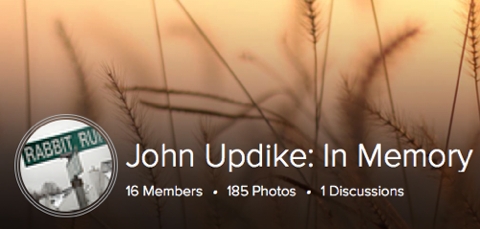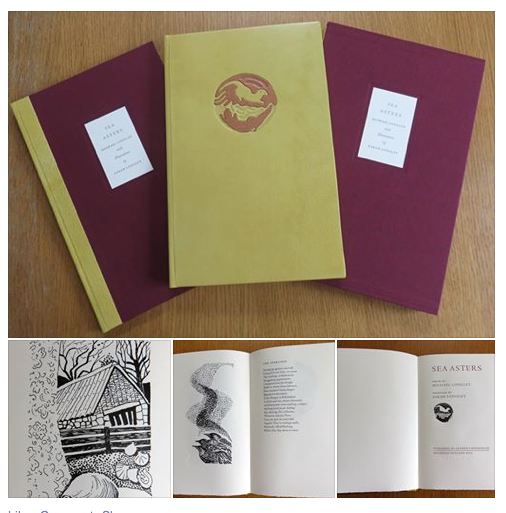 WGBH-Boston has announced “Reading Hearts: The BPR Summer Book Club,” a three-month, no boundaries, interactive book club hosted by Alex Beam. In other words, you can read along, and listen in on the conversation with callers about each of the books, if you don’t feel like calling in yourself.
WGBH-Boston has announced “Reading Hearts: The BPR Summer Book Club,” a three-month, no boundaries, interactive book club hosted by Alex Beam. In other words, you can read along, and listen in on the conversation with callers about each of the books, if you don’t feel like calling in yourself.
The June entry is Barefoot, by Elin Hilderbrand. For July, readers are asked to tackle Updike’s Rabbit, Run, and the communal read for August is Pack of Two: The Intricate Bond between People and Dogs, by Caroline Knapp.
The article quotes Amazon.com in summarizing Rabbit, Run as the July entry:
“Rabbit, Run is the book that established John Updike as one of the major American novelists of his—or any other—generation. Its hero is Harry ‘Rabbit’ Angstrom, a onetime high-school basketball star who on an impulse deserts his wife and son. He is twenty-six years old, a man-child caught in a struggle between instinct and thought, self and society, sexual gratification and family duty—even, in a sense, human hard-heartedness and divine Grace. Though his flight from home traces a zigzag of evasion, he holds to the faith that he is on the right path, an invisible line toward his own salvation as straight as a ruler’s edge.”
 The Telegraph today paid a 100th birthday tribute to “Saul Bellow: ‘American writer supreme.'”
The Telegraph today paid a 100th birthday tribute to “Saul Bellow: ‘American writer supreme.'”









